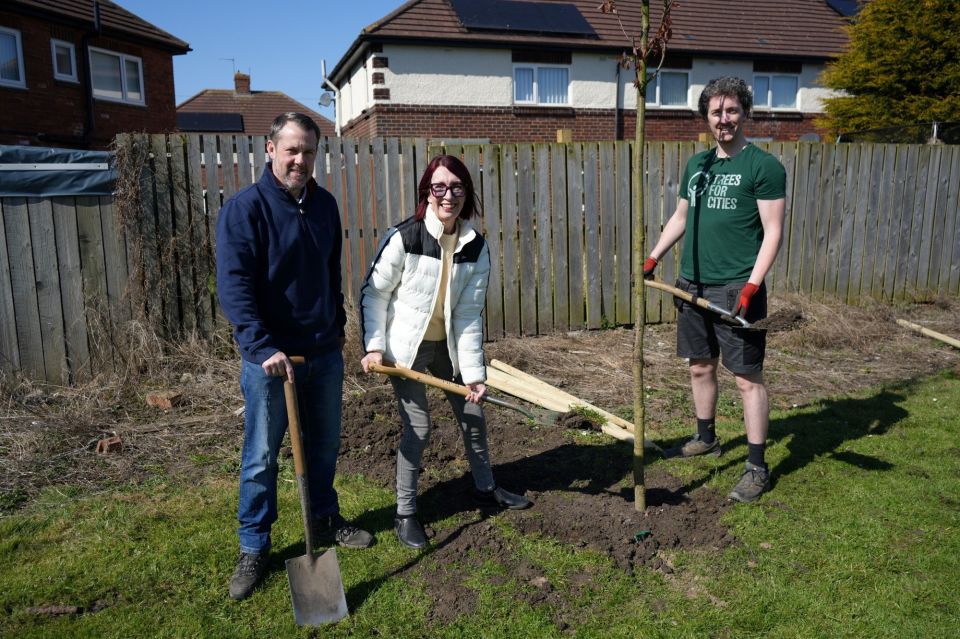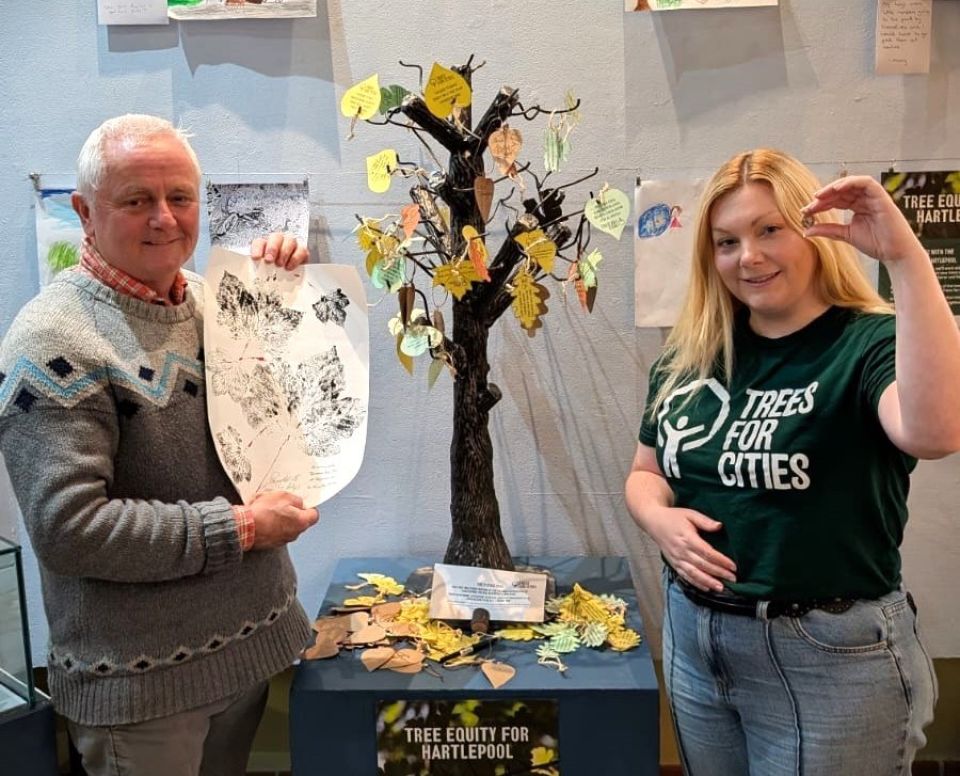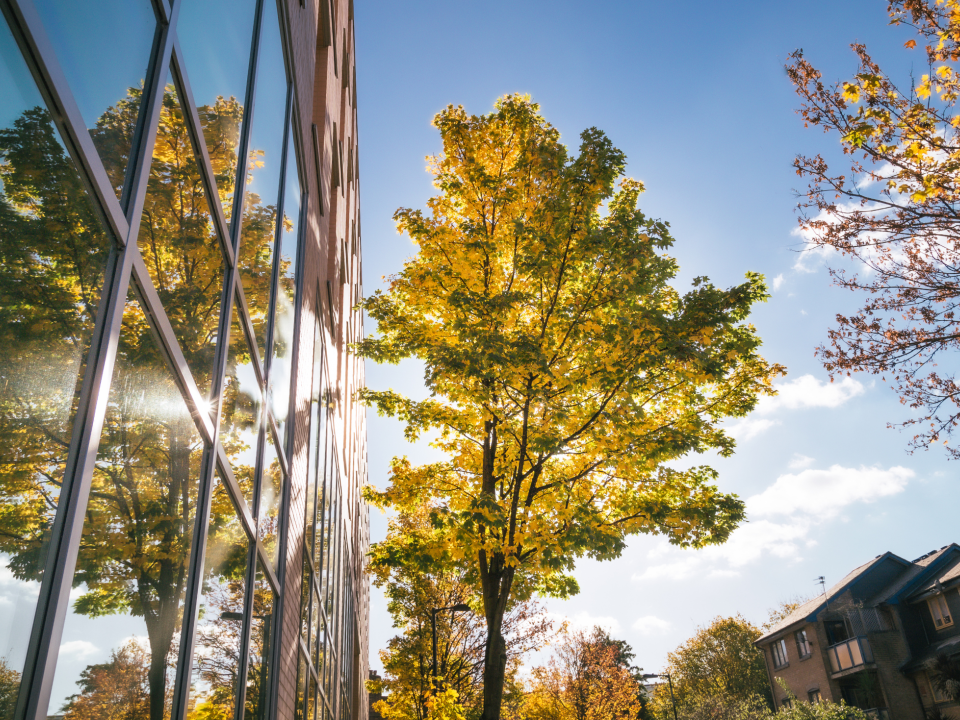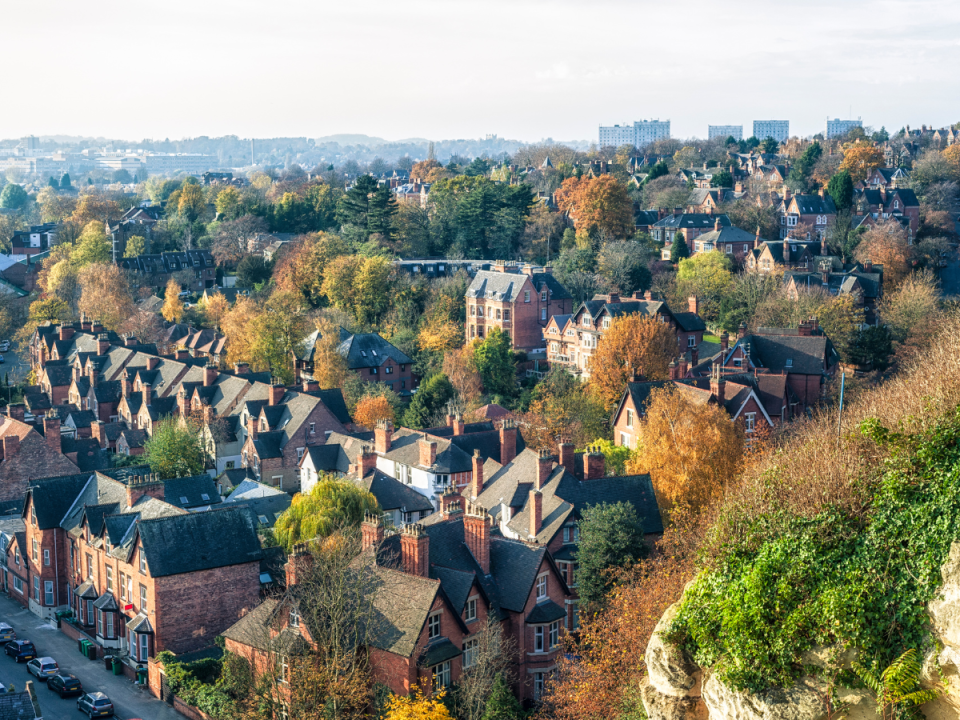Tree Equity for Hartlepool
Trees are a core component of nature in cities, but in many coastal places the tree canopy cover is as low as 2%. This matters, because it means that disadvantaged communities are left without the many health and well-being benefits that trees provide. We call this environmental injustice 'tree inequity'.
Hartlepool currently has one of the lowest Local Authority Tree Equity scores in the country. We're proud to be leading on Tree Equity for Hartlepool project, which is part-funded by the National Lottery Heritage Fund and The Linbury Trust who are supporting the first two years of work in a much bigger journey to tackle Hartlepool's low tree canopy cover.
We're planting new trees at Phoenix Centre! Sign up for the upcoming planting days below.
If you're having trouble viewing the video on our website, you can view it here on YouTube.
15%
is the minimum recommendation of tree canopy cover for coastal areas (Forest Research)
Increasing tree cover helps to reduce the harmful effects of environmental health hazards such as increased temperatures that can exacerbate existing health conditions, and air pollution, which can cause chronic conditions such as cardiovascular and respiratory diseases. UK neighbourhoods that are most deprived of income have less than half the tree cover per person and over 20% more air pollution than the least deprived neighbourhoods.
A UK-first
Tree Equity for Hartlepool will be a UK-first in using the Tree Equity tool comprehensively and town-wide, to form rigorous plans for change for residents where trees are needed most.
The project is running between February 2025 to May 2027, advocating for urban trees, developing strategic documents, and increasing canopy cover through tree planting with the community, to begin a journey towards a more healthy, sustainable and equitable urban forest for Hartlepool.
We’re delighted to be part of the Tree Equity for Hartlepool project as we currently have very low tree cover in the borough. Trees are not only important for wildlife; it’s a well-known fact that people who live with trees around them enjoy a better quality of life. Over the next two years there will be lots of tree planting opportunities for local people of all ages to get involved in, and we’re looking forward to that so much.
Councillor Gary Allen, Chair of Hartlepool Borough Council’s Adult and Community-Based Services Committee

Powered by partners and people
A multi-partner project led by Trees for Cities, Tree Equity for Hartlepool will create two staff roles locally who will work across planting, engagement and awareness raising of the urban forest.
Working with Hartlepool Borough Council, Tees Community Forest, The Woodland Trust, Thirteen Group and Treeconomics, this partnership brings together major local landowners alongside national tree specialists to deliver a quality programme of work.
Stories from Hartlepool's Parks
During National Tree Week (22nd – 30th November), we launched Stories from Hartlepool’s Parks, a celebration of the cultural heritage of Hartlepool’s trees. Working with residents, community groups and care homes, we gathered stories linked to Hartlepool's green spaces to pass down through the generations. These stories were then illustrated by Hartlepool's young people and proudly displayed at Hartlepool Art Gallery for all to enjoy!
We were also honoured to be presented with artwork made from the Sycamore Gap tree leaves, and a piece of the tree itself, from long-time advocate for the trees, Rob McBride. These will take pride of place in our office and serve as a tangible reminder of the love this nation has for its trees.

Stay Informed
Be the first to hear about community planting days in Hartlepool during planting season (between October to April) by signing up to our volunteer mailing list. We'll also share the latest project updates, fascinating facts and inspirational stories, plus a number of fundraising opportunities.
Coastal greening expertise
We've got a track record in greening coastal towns; our Forgotten Places project in 2021-23 saw just under 70,000 trees planted across seven coastal towns with high levels of socio-environmental deprivation.
It also created urban forestry jobs and training opportunities and created Tree Planting Guidance for Coastal Authorities, which is freely available to councils to support their urban forestry programmes, alongside a Bexhill Tree Planting Strategy, produced in collaboration with Treeconomics.
Further reading
-

Hartlepool project to address town-wide low tree cover
1 April 2025
Tree Equity for Hartlepool will help combat the town's low canopy cover which is well below the national average.
-

Forgotten Places: Greening Coastal Towns and Cities
We spearheaded the Forgotten Places: Greening Coastal Towns and Cities programme to pave the way for a green revolution in coastal towns.
-

How the UK’s new Tree Equity Score map can be the basis for change
6 December 2023
The Tree Equity Score map highlights what we at Trees for Cities have been championing for 30 years - so how best can we use this powerful resource to help areas that need it most?
-

Let's Talk Tree Canopy Cover
18 April 2024
Recent research by Forest Research highlights that deprived areas are still more likely to be devoid of trees.